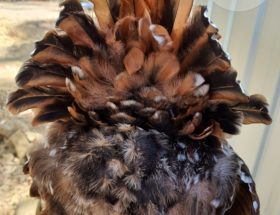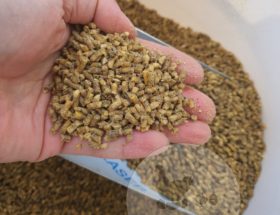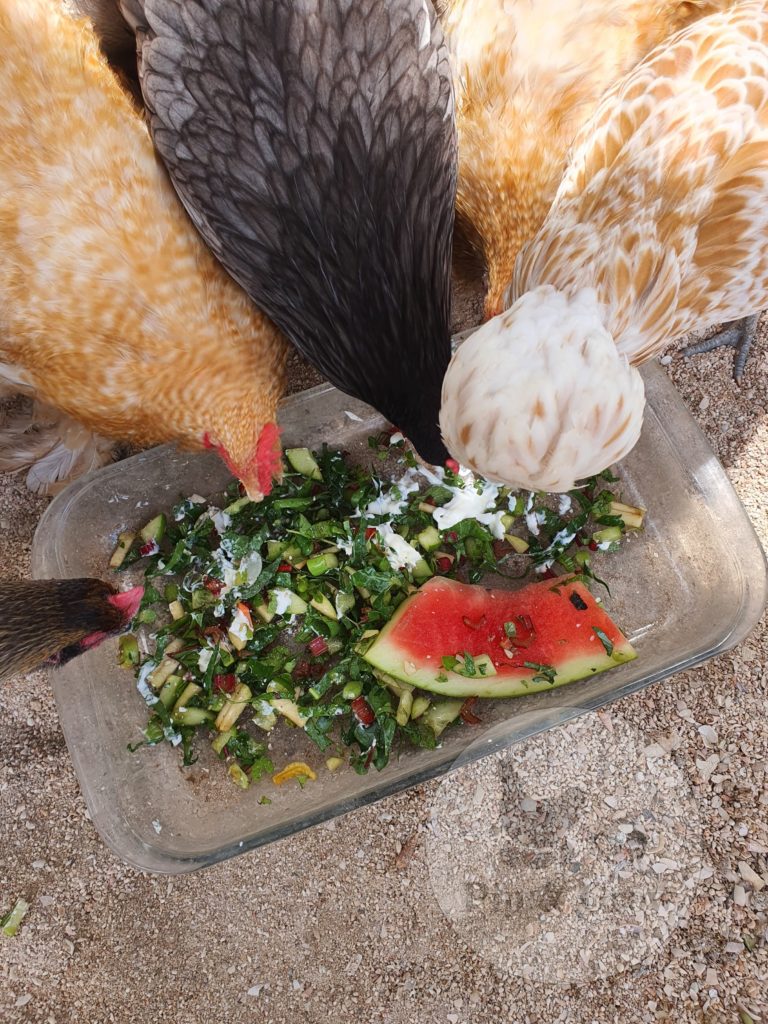
OK to feed List
- Complete Chicken Feed as their main diet : Commercially formulated chicken feed provides a balanced mix of nutrients, including protein, carbohydrates, vitamins, and minerals. Choose feeds appropriate for their life stage (starter, grower, layer) and supplement as needed. Read more “Chicken feed 101”
- Grains & Seed as a treat : Whole grains like corn, wheat, barley, and oats are excellent sources of energy for chickens. You can feed them whole or cracked grains as part of their diet.
- Protein Sources as a treat : Include protein-rich foods like sardines, mealworms, and other insects to support muscle development and egg production.
- Fruits and Vegetables as a treat : Offer a variety of fruits and vegetables, such as leafy greens, carrots, apples, and berries, as treats. These provide essential vitamins, minerals, and antioxidants.
- Calcium: Provide oyster shells or crushed eggshells as a calcium source, especially for laying hens to support strong eggshells.
- Grit: Chickens need grit (small stones or sand) in their diet to help grind down their food in their gizzards for digestion.
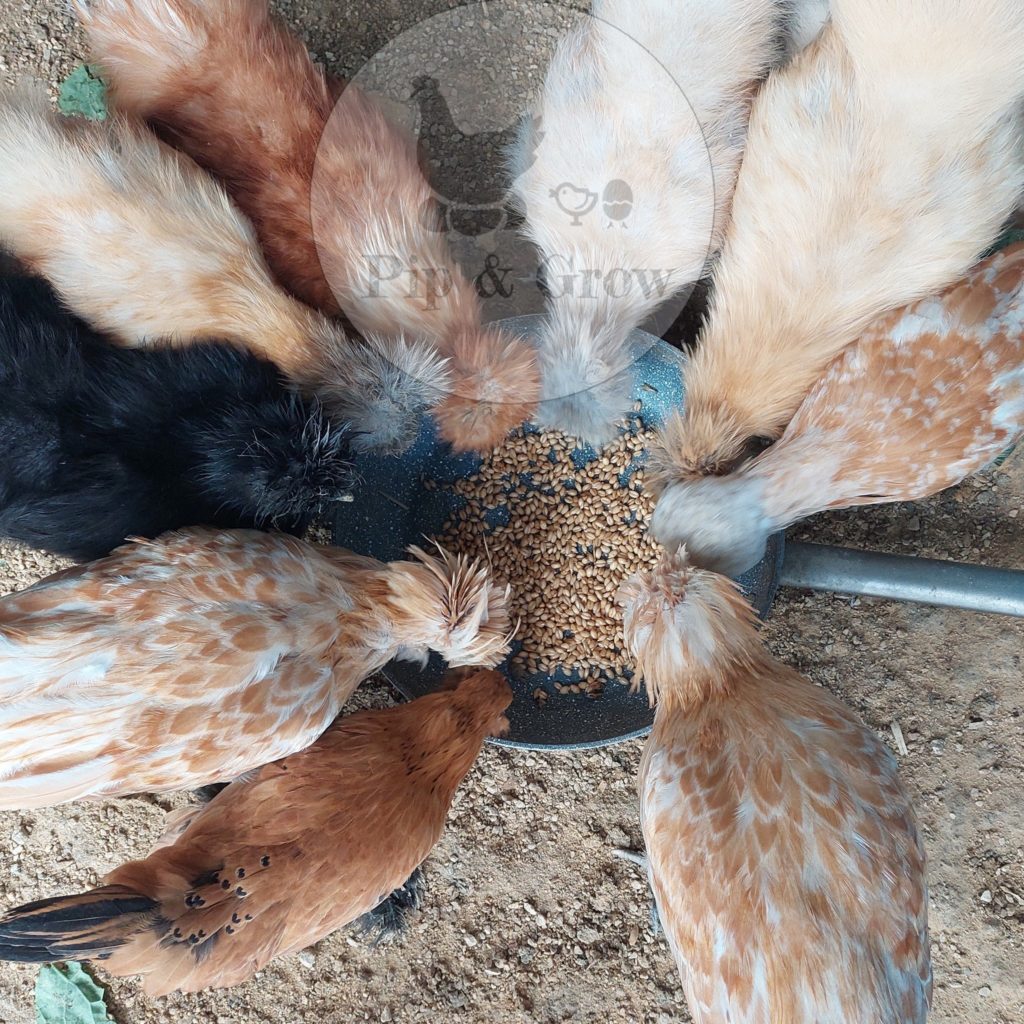
Note about Treat.
Giving chickens too many treats and scraps on a daily and routine basis can lead to picky eating habits. When chickens fill up on treats, they may avoid eating their main feed, which can result in nutritional deficiencies. Chickens have a limited capacity for food intake each day, and it’s crucial that the majority of their diet consists of balanced pellet feed rather than treats. While treats can be given occasionally as a supplement, it’s essential to prioritize their main feed to ensure they receive the necessary nutrients for optimal health and productivity.
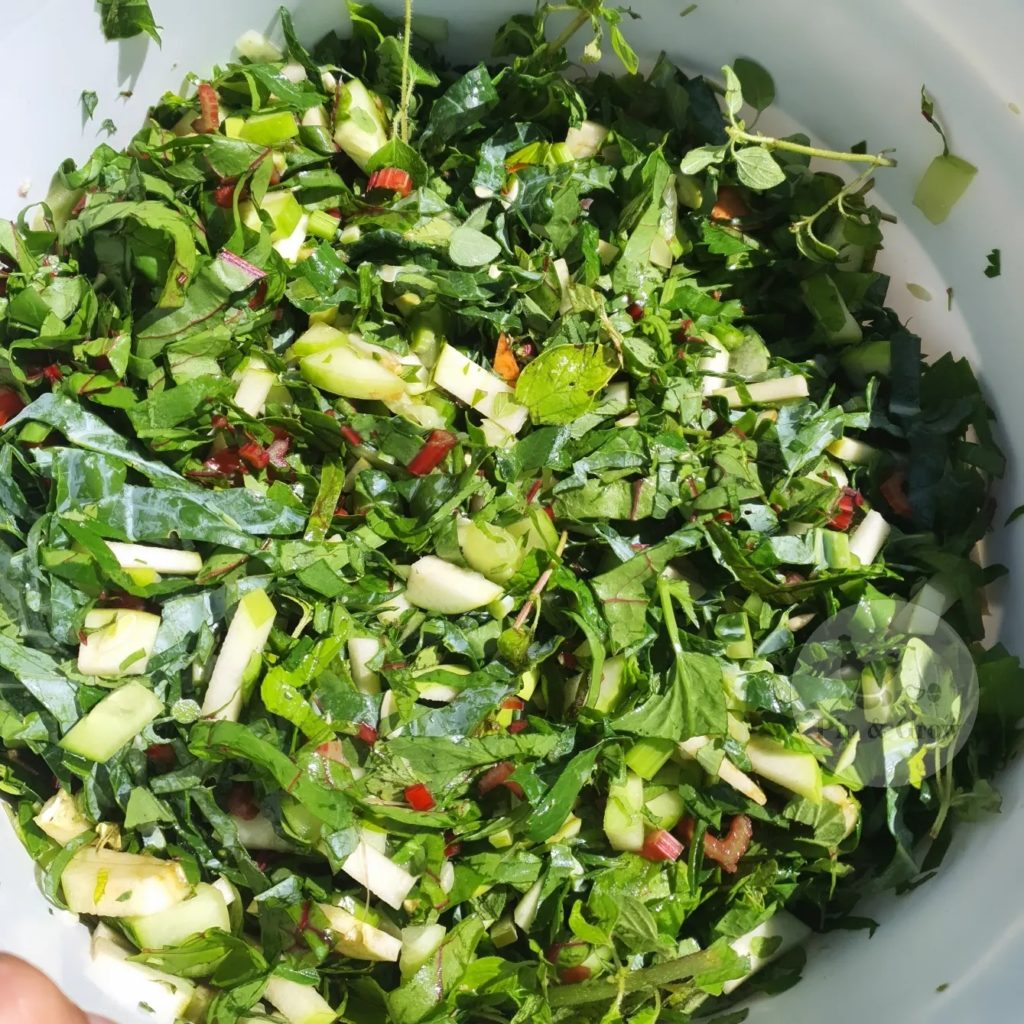
Do Not Feed List
- Moldy or Spoiled Food: Moldy or spoiled food can contain toxins that can make chickens sick. Avoid feeding them any food that shows signs of mold or spoilage.
- Avocado: Avocado and its pit contain a toxin called persin, which can be harmful to chickens.
- Chocolate: Chocolate contains theobromine, which is toxic to chickens and can cause heart and nervous system issues.
- Caffeine: Foods and beverages containing caffeine, such as coffee and tea, should be avoided as caffeine can be harmful to chickens.
- Alcohol: Alcohol is toxic to chickens and can cause a range of health issues, including intoxication, respiratory depression, and even death.
- Raw Beans: Raw beans contain toxins that can cause digestive issues and even death in chickens. Always cook beans thoroughly before feeding them to chickens.
- Green Potatoes and Tomato Leaves: The green parts of potatoes and tomato leaves contain solanine, a toxic compound that can cause digestive upset and other health issues in chickens.
- Rhubarb Leaves: Rhubarb leaves contain oxalic acid, which is toxic to chickens and can cause digestive issues and kidney damage.
- Onions and Garlic: Onions and garlic contain compounds that can cause anemia and digestive issues in chickens if consumed in large quantities.
- Xylitol : Consumption of xylitol can lead to hypoglycemia (low blood sugar), seizures, and even death in chickens when they ingest significant amounts.
- Junk Food: Avoid feeding chickens junk food, such as chips, candy, or processed snacks, as they are high in salt, sugar, and unhealthy fats, which can disrupt their nutritional balance and lead to health issues.
It’s essential to provide chickens with a balanced diet of commercial feed, grains, fruits, vegetables, and other safe treats while avoiding any foods that may be harmful or toxic to their health. Always monitor your chickens’ health and behavior and consult a veterinarian if you suspect they have ingested something toxic.
Useful link : List of Bird safe and toxic plant search

